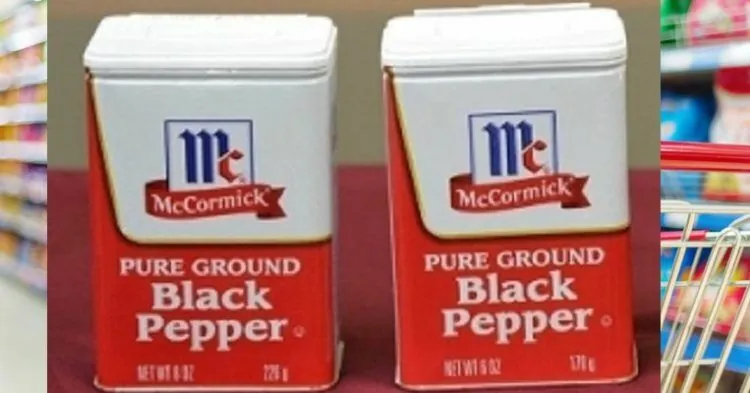A federal judge recently decided to file a lawsuit against the famous spice maker McCormick & Company, despite its objections. The lawsuit, which concerns the size of McCormick pepper powder cans, has caused a stir in the spice industry.

Watkins Inc., a smaller player in the market, filed the lawsuit against McCormick last year, arguing that the company had reduced the amount of pepper in its tins by 25% while retaining the same tin size. Previously, McCormick’s tins contained approximately 8 ounces of ground pepper, but after the change, the tins now contain only about 6 ounces.
This reduction in quantity has raised concerns that McCormick may be employing a visual trick to make it seem like they are offering more pepper per tin. Watkins claims that McCormick’s non-transparent containers obscure the actual amount of product they contain, whereas Watkins uses smaller-sized containers despite containing the same amount as McCormick’s tins. In response, Watkins filed legal action against McCormick, accusing him of deceptive marketing practices.
The crux of Watkins’ argument is that McCormick is trying to deceive customers and gain an unfair advantage over competitors without truly improving its products. McCormick lists the amount of pepper on the jar, but the font size is “6 ounces.” The markers are small and easy to miss.
Watkins believes this underfilling practice, known as “underfilling,” is deceptive and a violation of consumer protection laws. Even worse, Watokins say that McCoportics marketing tactics have a negative effect on sales. By comparing the two pepper containers, the customer can accidentally assume that the bankmic provides better value without recognizing that the bank actually contains the same amount of black pepper.
Masu. McCormick attempted to defend itself by arguing that because it clearly marked quantities on the cans, it could not be held responsible for others’ interpretations of misleading marketing. However, many are skeptical of this protection. In addition to Watkins’ lawsuit, angry customers who purchased new McCormick cans have filed a class-action lawsuit against the company, alleging fraud.
Both cases are currently pending in federal court. This entire episode highlights the importance of authenticity in business. Companies with strong brand reputations and positive relationships with their communities tend to be more successful. Deceptive tactics like the one used by McCormick damage their reputation and erode consumer trust. It is essential that consumers keep this distinction in mind before their next trip to the grocery store.

